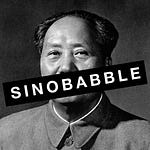On Sunday 9th June 2019 at 2:30pm starting at Victoria Park between the neighbourhoods of Tin Hau and Wan Chai, around 1 million Hong Kong residents took to the streets in possibly the biggest protest the territory had ever seen. They were protesting the implementation of an amendment to the preexisting Fugitive Offenders Ordinance and Mutual Legal Assistance in Criminal Matters Ordinance, known as the Fugitive Offenders and Mutual Legal Assistance in Criminal Matters Legislation (Amendment) Bill, but it’s mostly commonly known as the extradition bill for short. They objected to what they saw as an overreach by the mainland Chinese government, a threat to human rights and freedom of speech in Hong Kong, and they demanded that the bill be retracted and the Chief Executive of Hong Kong, Carrie Lam, step down.
After a silent march of thousands of lawyers opposing the bill took place on the 6th of June, public outrage finally reached boiling point on sunday 9th June, and after much planning and speculations of a turnout in the 100s of thousands, an all day march down the main roads of the Island saw families, students, old and young turn out to protest the bill.
Why is it that this particular bill has caused such feelings to rise up in the people of Hong Kong, and caused events to escalate to where they are now? Why are people in the international community seeking to protect Hong Kong’s special status, and clamouring to show their solidarity with Hong Kong protesters both online and in person? In truth, the protests over the extradition bill cannot be viewed in isolation, but must be understood within the context of Hong Kong’s relationship with China, and the development of an independent and unique Hong Kong identity that can be traced back to the 1840s. In this episode, I’d like to try and trace the roots of that identity, and try and explain why protests over the extradition bill reflect not only the fears of so many Hong Kong people, but also their determination to fight for what remains of their freedom and independence. To do that we’re first going to go back in time one hundred years or so, to see how Hong Kong became so unique in its identity and character, and how relations with the mainland have been shaped by what happened leading up to 1997.






Hong Kong's Extradition Protests (1): A brief History of Hong Kong-China Relations